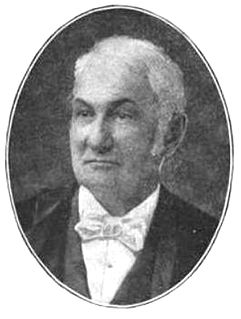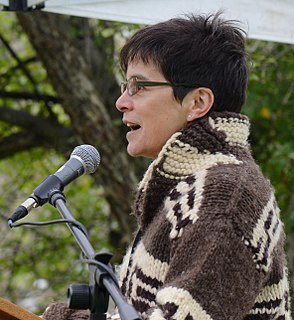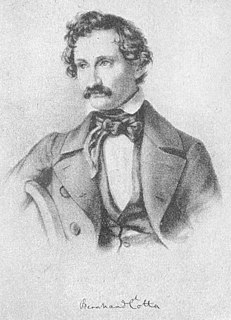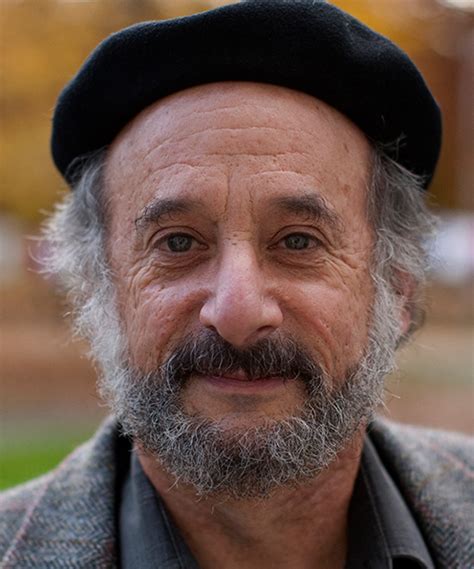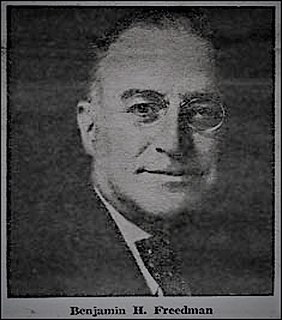Top 1200 Events In History Quotes & Sayings - Page 10
Explore popular Events In History quotes.
Last updated on November 2, 2024.
What they teach you as history is mythology and true mythology is far from fantasy -- it is our true history. A bulk of our real history can be found in Egyptian and Greek mythology. Yes, myths reveal to us worlds of other dimensions that make up our true reality. History books teach us that the minds of the past operated on the same frequency, dimension, or level of consciousness as we do now. Not true at all.
What experience and history teach is this - that nations and governments have never learned anything from history, or acted on any lessons they might have drawn from it. Variant: What experience and history teach is this - that people and governments never have learned anything from history, or acted on principles deduced from it.
The true test of the American ideal is whether we're able to recognize our failings and then rise together to meet the challenges of our time. Whether we allow ourselves to be shaped by events and history, or whether we act to shape them. Whether chance of birth or circumstance decides life's big winners and losers, or whether we build a community where, at the very least, everyone has a chance to work hard, get ahead, and reach their dreams.
Within the first few months I discovered that being president is like riding a tiger. A man has to keep riding or be swallowed. The fantastically crowded nine months of 1945 taught me that a President either is constantly on top of events or, if he hesitates, events will soon be on top of him. I never felt I could let up for a single moment.
They don't really focus on that history here in America. I remember growing up as a kid, history class was very washed-over. They didn't really get into the gritty bits of slavery. It's a very, very small section in the history books. It's not something they really touch on directly with American curriculums.
Science fiction is the most important literature in the history of the world, because it's the history of ideas, the history of our civilization birthing itself. ...Science fiction is central to everything we've ever done, and people who make fun of science fiction writers don't know what they're talking about.
History is not the story of strangers, aliens from another realm; it is the story of us had we been born a little earlier. History is memory; we have to remember what it is like to be a Roman, or a Jacobite or a Chartist or even - if we dare, and we should dare - a Nazi. History is not abstraction, it is the enemy of abstraction.
No doubt Carlyle has a propensity to exaggerate the heroic in history, that is, he creates you an ideal hero rather than another thing.... Yet what were history if he did not exaggerate it? How comes it that history never has to wait for facts, but for a man to write it? The ages may go on forgetting the facts never so long, he can remember two for every one forgotten. The musty records of history, like the catacombs, contain the perishable remains, but only in the breast of genius are embalmed the souls of heroes.
The line that I am urging as today's conventional wisdom is not a denial of consciousness. It is often called, with more reason, arepudiation of mind. It is indeed a repudiation of mind as a second substance, over and above body. It can be described less harshly as an identification of mind with some of the faculties, states, and activities of the body. Mental states and events are a special subclass of the states and events of the human or animal body.
Real Madrid is like Manchester United or Liverpool or Bayern Munich. There is so much history, and you need to play and win against that history. It's difficult to play against them because you fight against everything - the history, the players - but because of that, the motivation is always so high.
If you tell me that there are obstacles in the way of your ambition that make it impossible to pursue, then I know it's not a real ambition. There are always obstacles. The 'perversity of events,' as someone once called it, is always ready to lick us. Events are never right for achieving what we most want to achieve. If this were not so, there would be no real fun in being 17 -- or even in being alive.
I have always lived in a world in which I'm just a spot in history. My life is not the important point. I'm just part of the continuum, and that continuum, to me, is a marvelous thing. The history of life, and the history of the planet, should go on and on and on and on. I cannot conceive of anything in the universe that has more meaning than that.
To trace the history of a river or a raindrop is also to trace the history of the soul, the history of the mind descending and arising in the body. In both, we constantly seek and stumble upon divinity, which like feeding the lake, and the spring becoming a waterfall, feeds, spills, falls, and feeds itself all over again.
The Gospels were written in such temporal and geographical proximity to the events they record that it would have been almost impossible to fabricate events. Anyone who cared to could have checked out the accuracy of what they reported. The fact that the disciples were able to proclaim the resurrection in Jerusalem in the face of their enemies a few weeks after the crucifixion shows that what they proclaimed was true, for they could never have proclaimed the resurrection under such circumstances had it not occurred.
Think of the majesty of that moment in this dying world's history, when Jesus Christ declared that to the Christian death was only a sleep. Outside of that small dwelling in Capernaum, a great race of men rushed and toiled as they harassed continents and seas; mighty events marshaled themselves into annals and pageants. What was inside? In one inconspicuous chamber of a now forgotten house, man's Redeemer, unobserved, martyred man's final enemy. There Immanuel subdued death forever.
Tell the story, gather the events, repeat them. Pattern is a matter of upkeep. Otherwise the weave relaxes back to threads picked up by birds to make their nests. Repeat, or the story will fall and all the king's horses and all the king's men. . . . Repeat, and cradle the pieces carefully, or events will scatter like marbles on a wooden floor.
Lady Placida smiled. “History seldom takes note of serendipity when it records events. And from what I have heard, I suspect an argument could be made that you very much did earn the title.” “Many women have earned titles, Your Grace. It doesn't seem to have been a factor in whether or not they actually received them.” Lady Placida laughed. “True enough. But perhaps that is beginning to change.” She offered her hands. “It is a distinct pleasure to meet you, Steadholder.
With a historical novel you know that liberties are being taken. Since Walter Scott, we know that poetic license, dramatic license, that events been conflated and that liberties have been taken, characters ditto, dates rearranged. But people don't seem to understand that movies are fictions, they are dramatizations, at least historical movies, and we should accord the moviemakers some of the same understanding and latitude. When you go to a movie you know it's a dramatization and not history.
Let us not forget that the value of this great system does not lie primarily in its extent or even in its efficiency. Its worth depends on the use that is made of it... For the first time in human history we have available to us the ability to communicate simultaneously with millions of our fellowmen, to furnish entertainment, instruction, widening vision of national problems and national events. An obligation rests on us to see that it is devoted to real service and to develop the material that is transmitted into that which is really worthwhile.
I've always loved history, from my youngest memories. My father enjoyed the great stories of history, like Hereward the Wake, Robin Hood, and Richard the Lionheart, and he shared them with me. I went on to do a degree in history, though I found it rather dry, because it was mostly about politics rather than dashing individuals!
There are four great events in history, the siege of Troy, the life and crucifixion of Christ, the exile of Krishna in Brindaban and the colloquy on the field of Kurukshetra. The siege of Troy created Hellas, the exile in Brindaban created devotional religion, (for before there was only meditation and worship), Christ from his cross humanized Europe, the colloquy at Kurukshetra will yet liberate humanity.
Medical thinking usually sees stress as highly disturbing but isolated events such as, for example, sudden unemployment, a marriage breakup, or the death of a loved one. These major events are potent sources of stress for many, but there are chronic daily stresses in people's lives that are more insidious and more harmful in their long-term biological consequences. Internally generated stresses take their toll without in any way seeming out of the ordinary.
I've heard - when I first started, people were saying, "You know if it ends up being Trump against [Hillary] Clinton, it's going to be the highest-rated debate in the history of television - or, show in the history of television. And they also said something else. It'll probably be the greatest voter turnout in the history of this country. That could very well be.
The voice of our age seems by no means favorable to art, at all events to that kind of art to which my inquiry is directed. The course of events has given a direction to the genius of the time that threatens to remove it continually further from the ideal of art. For art has to leave reality, it has to raise itself bodily above necessity and neediness; for art is the daughter of freedom, and it requires its prescriptions and rules to be furnished by the necessity of spirits and not by that of matter.
This is not remarkable, for, as we know, reality is not a function of the event as event, but of the relationship of that event to past, and future, events. We seem here to have a paradox: that the reality of an event, which is not real in itself, arises from the other events which, likewise, in themselves are not real. But this only affirms what we must affirm: that direction is all. And only as we realize this do we live, for our own identity is dependent upon this principal.
After school, I went to Damascus to study law and history, which I didn't really like. I didn't like history, in particular. In Syria, the regime was trying to present to us a distorted version of the past. Assad was shown as the father of history. So I decided to shift to film, which was something I had always loved as a teenager.
In the course of the history of the earth innumerable events have occurred one after another, causing changes of states, all with certain lasting consequences. This is the basis of our developmental law, which, in a nutshell, claims that the diversity of phenomena is a necessary consequence of the accumulation of the results of all individual occurrences happening one after another... The current state of the earth, thus, constitutes the as yet most diverse final result, which of course represents not a real but only a momentary end-point.
In my photographic work I'm generally attracted to places that contain memories, history, atmospheres and stories. I'm interested in the places where people have lived, worked and played. I look for traces of the past, visual fingerprints, evidence of activities - they fire my imagination and connect into my own personal experiences. Using the analogy of the theater, I would say that I like to photograph the empty stage, before or after the performance, even in between acts. I love the atmosphere of anticipation, the feeling in the air that events have happened, or will happen soon.
The function of traditional history is to create a citizenry that looks to the top - the president, Congress, the Supreme Court - to make the important decisions. That's what traditional history is all about: the laws that were passed, the decisions made by the court. So much of history is built around "the great men." All of that is very anti-democratic.
Archaeology in general is the recovery and study of the material culture of past civilizations. Biblical archaeology is as an application of the science of archaeology to the field of biblical studies. Through the comparison and integration of Scripture with the evidence of history and culture derived from archaeology, new insights into the biblical context of people and events, and sometimes the interpretation of the text itself, are possible. In this way archaeology serves as a necessary tool for biblical exegesis and for apologetic concerns.
The real invasion of South Vietnam which was directed largely against the rural society began directly in 1962 after many years of working through mercenaries and client groups. And that fact simply does not exist in official American history. There is no such event in American history as the attack on South Vietnam. That's gone. Of course, It is a part of real history. But it's not a part of official history.
I've benefited greatly from studying many effective people from history. Among those who've influenced me the most are Ronald Reagan, Theodore Roosevelt, and Winston Churchill. Each of the three altered history; each was self-created to a great extent; and each was a great student of history and leadership.
Time and again-from the collapse of the Soviet Union to the events of 9/11 to the onset of the Arab Spring-events have caught the experts, whether in government or on the outside, completely by surprise. Business owners with comparable performance records go bust. Brokers lose their clients. Physicians get sued for malpractice. Yet think-tankers and policy wonks continue to opine, never pausing to reflect on-or apologize for-their spotty records.
Muslims naturally saw Christendom as their arch rival. One point that is really important to bear in mind, particularly in addressing an American audience, and that is that the Islamic world has a very strong sense of history. In the Muslim world, history is important and their knowledge of history is not always accurate but is very detailed. There is a strong historical sense in the Muslim world, a feeling for the history of Islam from the time of the Prophet until the present day.
Back in the late '90s, a writer named Daniel Handler decided that kids books were too cheerful. I mean, all the "Harry Potter" series did was occasionally kill off major characters. Thus was born "A Series Of Unfortunate Events" and its mysterious author, Lemony Snicket. "A Series Of Unfortunate Events" is now a great new series on Netflix.
What is history? Any thoughts, Webster?' 'History is the lies of the victors,' I replied, a little too quickly. 'Yes, I was rather afraid you'd say that. Well, as long as you remember that it is also the self-delusions of the defeated. ... 'Finn?' '"History is that certainty produced at the point where the imperfections of memory meet the inadequacies of documentation." (quoting Patrick Lagrange)
The history of the world for the past several centuries and current events at home and abroad confirm the existence of such a conspiracy (to destroy Christianity and obtain global power). The world-wide net-work of diabolical conspirators implements this plot against the Christian faith while Christians appear to be sound asleep. The Christian clergy appear to be more ignorant or more indifferent about this conspiracy than other Christians ... It seems so sad.
Third, and finally, the educated citizen has an obligation to uphold the law. This is the obligation of every citizen in a free and peaceful society--but the educated citizen has a special responsibility by the virtue of his greater understanding. For whether he has ever studied history or current events, ethics or civics, the rules of a profession or the tools of a trade, he knows that only a respect for the law makes it possible for free men to dwell together in peace and progress.
I think that it drives from an emotional connection with everybody that pulls you through all of those events, whether it's the events or what would be more the action, or I guess the visual effects side of it. So it always starts with me from - emotionally - 'Why do you care about the people who are going through what they're going through?' Because it takes a hell of a lot to put them through that. So you better care for them when they're doing it.
























